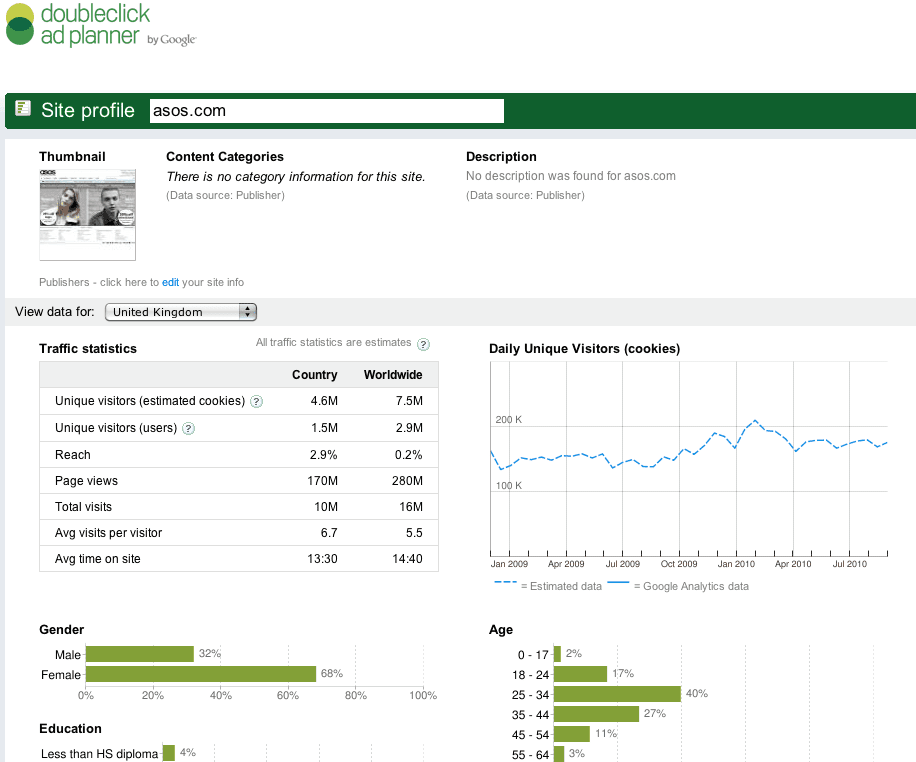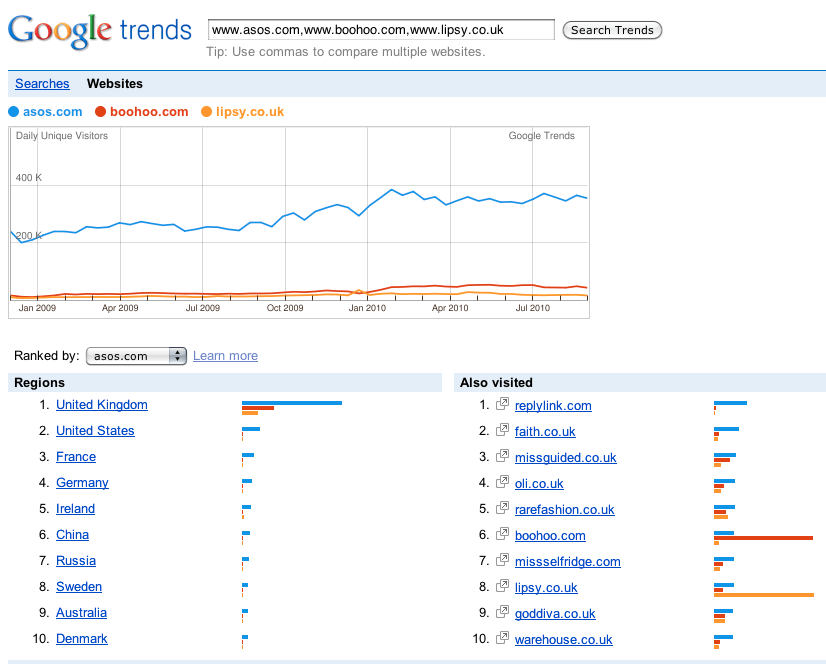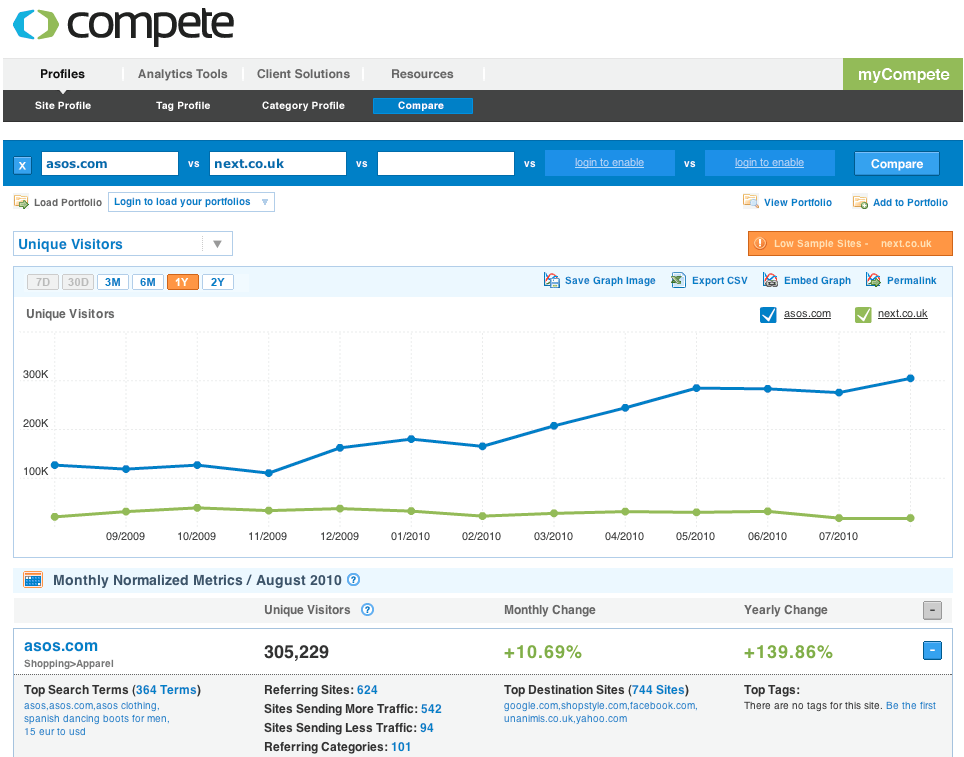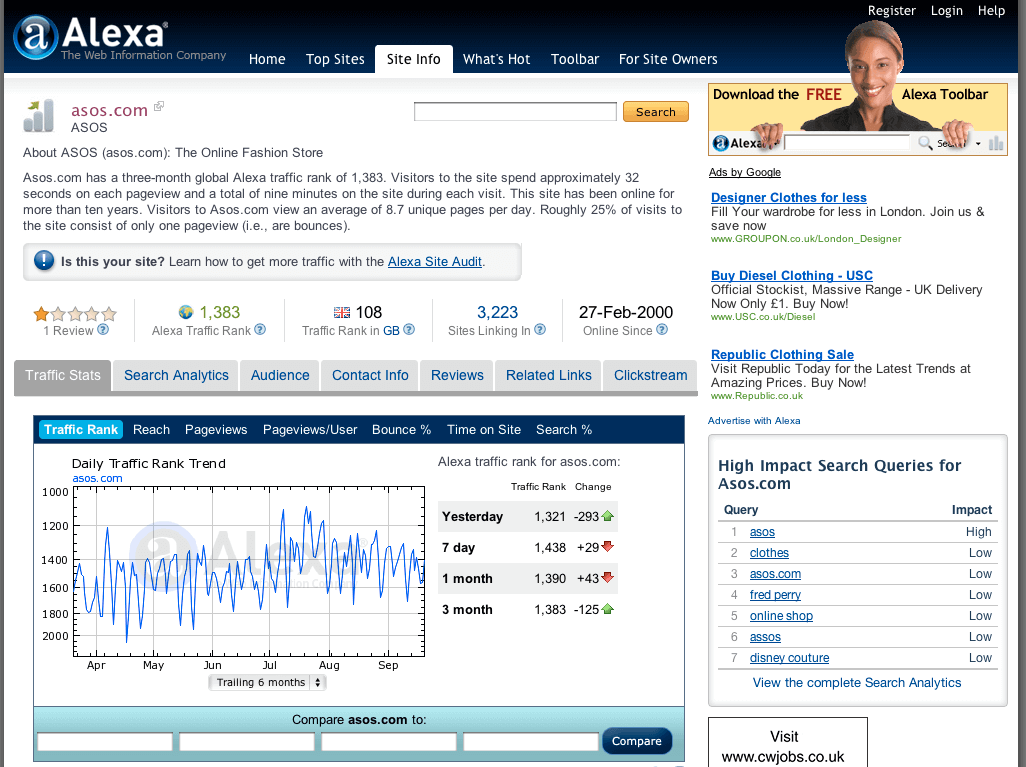Our recommended tools for comparing your visitor numbers against competitors
All site owners want to know "how do we compare to our rivals" in number of visitors, but of course web analytics tools don't give you that. Instead you have to turn to independent benchmarking tools. I still hear a lot of folk saying they use Alexa, but they really shouldn't unless force to - there are much better tools available - this is what we recommend.
Although the main purpose of these tools is comparing trends in visitor number, they also have other less well-known features that are also helpful to marketers when completing these activities:
- Benchmark number of site visitors against competitors - can be useful for justifying investment in traffic building, reviewing their seasonality or comparing campaigns
- Review audience composition e.g. demographics for competitors
- Review the reach and audience of potential partner sites such as blogs or publisher sites
- Find basic information on sites linking to your site or competitor sites. See our review of the best competitor backlink analysis tools for more capable tools.
I'll take the example of the ASOS.com clothing retailer to showcase the features of these tools.
Here are our suggestions on the best tools in order of which we think are most valuable
1. Doubleclick Adplanner
Overview: A relatively new tool compared to some on this list, this tool from Google Doubleclick is the best for accuracy since it's based on Google's own data of site popularity and affinity (based on Google Toolbar usage) and additional information such as demographics. But it's still not so well known.
Site address: https://www.google.com/adplanner
NB. Unfortunately on September 5th 2012, Ad Planner information became limited to placements within the Google Display Network (GDN) and this info became unavailable, so reducing it's value for competitor benchmarking. It is still valuable for comparing some media sites that are on the GDN.
- Domain info
- Site info
- Non-GDN placement info
- Household Income
- Education
- Keywords Searched For
- Videos Also Watched
- Regional Page Views
- Worldwide Top Subdomains

Pros:
- Gives unique visitor numbers
- Shows trends
- Shows audience composition, i.e. age/sex demographic
- Reports subdomain popularity, e.g. 76K on ASOS
- Compare site engagement
- Reports on country popularity
- Shows related sites useful for identifying direct competitors and potential partners
- Most accurage? Uses Google search information and where available Google Analytics
Cons:
- Information not available for smaller sites, < c 1K visits per day
2. Google Trends for Websites
Site address: http://trends.google.com/websites

Overview: Many will know about Google Trends which is useful for keyphrase analysis but has been replaced by Google Insights for Search. This tool doesn't offer many additional benefits over Google Adplanner.
Pros:
- Main benefit: can compare sites side-by-side unlike Adplanner
- Estimates of unique visitors when logged in
- Shows related sites with relative popularity better than Adplanner
Cons:
3. Compete
Site address: http://www.compete.com

Overview: A relatively new entrant rivalling Alexa and Hitwise.
Pros:
- Shows variation through time well
- Great interface
- Keyphrase share analysis and referrer benchmarking
Cons:
- Thin on methodology
- US-based panel
4. Alexa
Site address: http://www.alexa.com

Overview: One of the most established tools bought by Amazon some time ago, it's still the best option for smaller sites which don't appear in the other toolsets. I hear this recommended often, but for me it's a last resort. Why use it when the Google tools give you much more. You have to think seriously about the toolbar data collection which isn't representative of your average web users IMO.
Pros:
- Free
- Provides engagement, including bounce rate measures for benchmarking
Cons:
- Data accuracy - not based on large sample of UK users - how many Alexa or IMDB toolbar users do you know
- Doesn't give unique visitor values
So that's our round-up! Please share your preferred tools or let us know about any you think we're missing.











